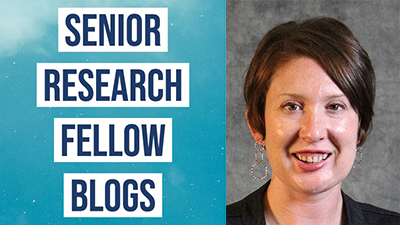It’s easier than ever to bring the Page Center Awards into your classroom
February 4, 2021 • Stephanie Madden

One of the many challenges of being a university-level educator during the COVID-19 pandemic is watching our prepared and motivated students face an uncertain professional future. While canceled internships and potentially lackluster job prospects are a very real challenge, one opportunity provided by our Zoom-based reality is the enhanced access available to professional events that were once financially or geographically out of students (and professors!) ability to attend.
An event that I, let alone my students, have never had an opportunity to attend is the annual Page Center Awards. I am thrilled that the Page Center decided to make the event both free and virtual this year. Now more than ever, it is crucial that our students see examples of communicators upholding the highest ethical values in the name of public interest. Despite increased access, we know it can be a challenge to persuade students of the benefit of attending (even virtually) such professional events. Here are three easy ways I’m incorporating the virtual Page Center Awards into my public relations campaigns capstone course this semester.
Attend the awards show (synchronously or asynchronously)
This year the Page Center Awards are on Wednesday, Feb. 24 at 7 p.m. ET (mark your calendars and register if you haven’t already!) I am always conflicted about requiring my students to attend something outside of our normal class time because I know they lead busy lives as well. Additionally, I’m a firm believer in not adding more work to our students’ plate because of new forms of access during the pandemic. One way I am trying to mitigate this is through time substitution. I teach on Tuesdays and Thursdays, so instead of having class the day after the event their attendance at the awards show counts as their time in class. Because I know many students also have jobs and other obligations at night, for those who cannot attend the live event a recording will be made available that they can watch on their own.
The recording will be emailed to registrants after the event, so please have your students register.
Network on Twitter
I’m also excited that the awards show will also involve live tweeting this year (#PageCenterAwards). I want to encourage students to see Twitter as a professional networking tool. I will be encouraging my students to participate in the Twitter chat to interact with professionals and other students from across the country. I know many #PRProfs who are eager and willing to help our students network because we know just how important it is to landing those jobs and internships (they still exist, even if it doesn’t feel like it!) I’m thrilled to be working closely with the Page Center on this new endeavor into the wild and fast-paced world of live tweeting. An intern and a member of the Page Center advisory board will join me in the Twitter chat to network, react and share ideas during the event.
While interacting in real-time is fun, it is also possible to engage on Twitter with discussions after the fact (and is sometimes easier to digest rather than trying to read everything in the moment). Many students have stayed engaged with me on Twitter years after I’ve had them as a student. This has helped me easily connect students to opportunities as I see them arise, and it also allows me to have a pool of potential guest speakers for my future classes. Public relations is about those mutually beneficial relationships, right?
Reflecting on ethics
I love reflection assignments. It may be due to the years of training I have as a qualitative researcher that I value this form of self-reflexivity. I’m having my students do a one-to-two-page reflection on how ethics in public communication were discussed during the awards event. Furthermore, I want to have my students reflect on the type of legacy that they want to have as future public communicators. If they were to be honored by the Page Center in 30 years, what would they be honored for and what steps can they take now to develop that legacy?
By including the Page Center Awards as part of my course, I’m hoping to help my students develop important professional connections and are inspired by the honorees. I think now, more than ever, is an important chance for us all to think about why we got into public communication (as practitioners, teachers, researchers, and students) and what type of legacy we want to leave.
Dr. Madden is a senior research fellow at the Page Center. For more ideas on how to incorporate the awards into your classroom, visit the Page Center's activities for students page.

